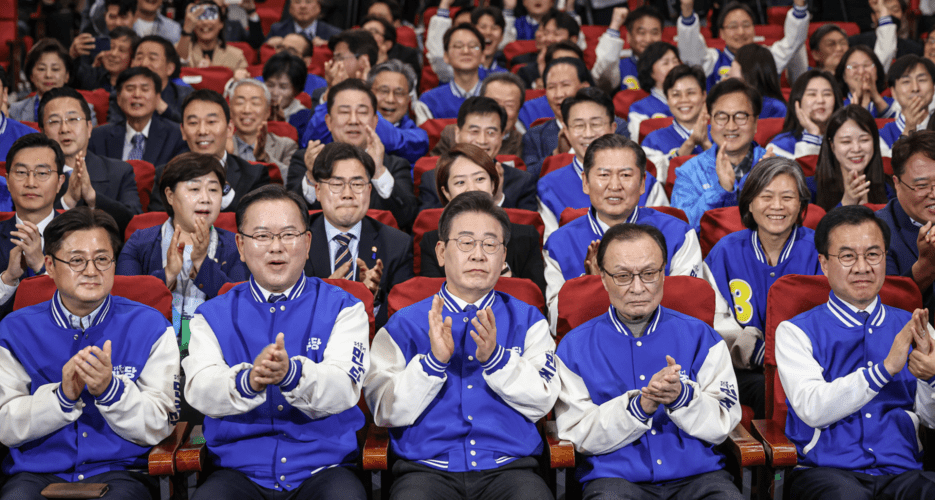Democratic Party and allies set to challenge President Yoon Suk-yeol’s agenda, but fall short of veto-proof majority
The main opposition Democratic Party (DP) has retained its majority in South Korea’s 22nd parliamentary election, with the ruling People Power Party (PPP) facing its third consecutive defeat.
The DP won 161 out of 254 directly contested seats in the National Assembly. In contrast, the PPP secured only 90 seats, primarily in its southeastern stronghold. Including proportional seats, the DP is expected to win 176 seats and the PPP 109 seats in the 300-member National Assembly.
Former justice minister Cho Kuk’s Rebuilding Korea Party (RKP) is expected to secure 12 to 14 proportional seats, meaning that the wider DP-RKP bloc is expected to win 188 to 190 seats combined. However, this figure falls short of the two-thirds supermajority required to dominate the legislature, which requires a minimum of 200 seats.
Why It Matters
The election outcome is a significant blow to President Yoon Suk-yeol and the PPP. The PPP’s continued status as a minor ruling party will impede the administration’s reform agenda, making Yoon the first South Korean president to complete a full term without the support of a majority ruling party. However, the conservatives avoided the worst possible outcome of the opposition bloc securing a 200-seat supermajority, which would have nullified Yoon’s veto power.
While the combined DP-RKP bloc will be able to fast-track legislation, it remains to be seen if it will be able to carry out its proposed special counsel investigations successfully. For instance, RKP leader Cho Kuk pledged to propose a special counsel investigation into Yoon and PPP interim leader Han Dong-hoon, focusing on allegations of impropriety during Yoon’s tenure as prosecutor-general. Cho also promised to initiate a special probe into the alleged stock manipulation crimes involving first lady Kim Keon-hee and her mother if the DP-RKP bloc secured 200 seats. Without the supermajority, the bloc will find it challenging to overcome Yoon’s veto.
Moreover, Cho could still lose his seat if South Korea’s Supreme Court upholds his two-year prison term. Cho received a two-year prison sentence and a fine of $4,700 (6 million won) in Feb. 2023 for his involvement in forging documents for his children’s higher education admissions, among other charges.
Meanwhile, Yoon’s domestic agenda, including deregulation, tax cuts and the closure of the gender ministry, will likely be stymied. Additionally, Yoon will likely face pressure from within the PPP to resign from the party. The general election has been widely perceived as a referendum on the president’s leadership, and ruling party lawmakers will likely see Yoon’s continued membership in the party as a liability in the 2027 presidential election.
The main opposition Democratic Party (DP) has retained its majority in South Korea’s 22nd parliamentary election, with the ruling People Power Party (PPP) facing its third consecutive defeat.
The DP won 161 out of 254 directly contested seats in the National Assembly. In contrast, the PPP secured only 90 seats, primarily in its southeastern stronghold. Including proportional seats, the DP is expected to win 176 seats and the PPP 109 seats in the 300-member National Assembly.
Get your
KoreaPro
subscription today!
Unlock article access by becoming a KOREA PRO member today!
Unlock your access
to all our features.
Standard Annual plan includes:
-
Receive full archive access, full suite of newsletter products
-
Month in Review via email and the KOREA PRO website
-
Exclusive invites and priority access to member events
-
One year of access to NK News and NK News podcast
There are three plans available:
Lite, Standard and
Premium.
Explore which would be
the best one for you.
Explore membership options












